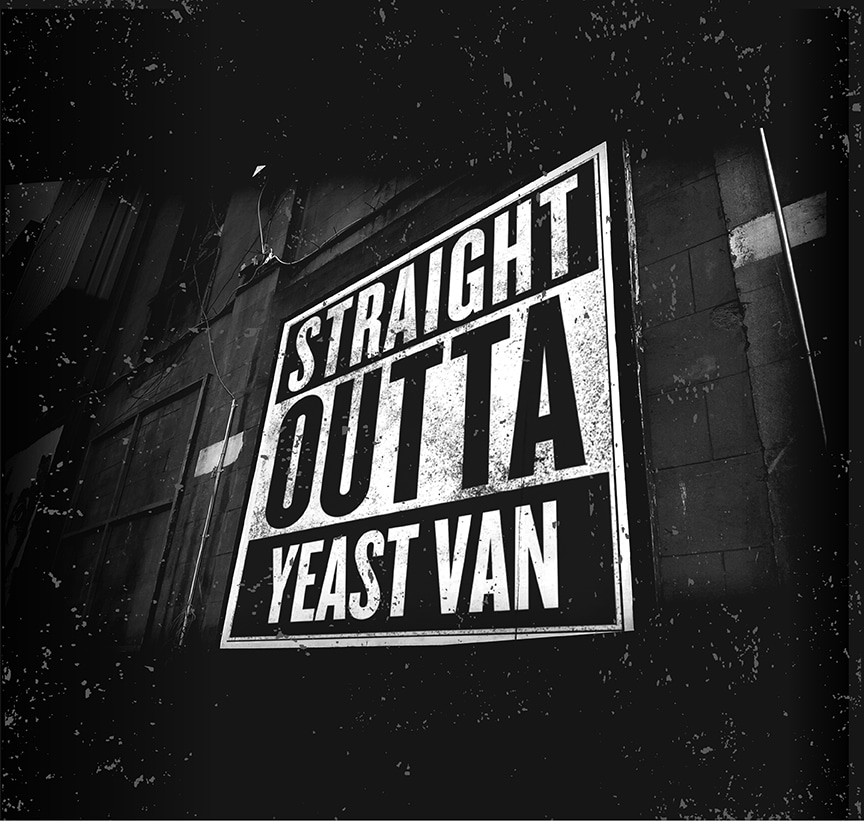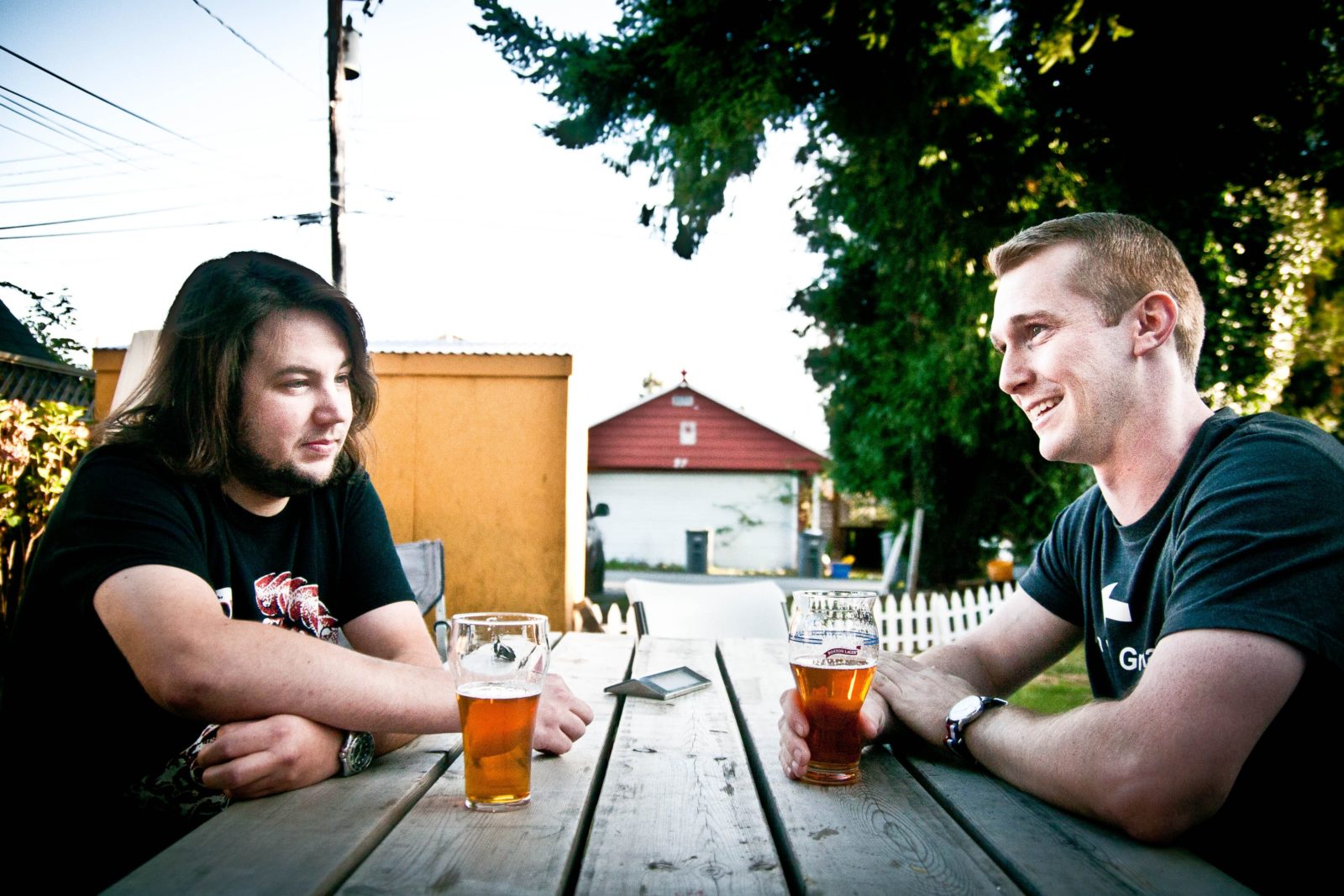
When it comes to modern, North American craft beer, there are really three main brewing traditions that have influenced what we drink today. Generally every beer on tap at your favourite craft brewery can trace its lineage to England, Belgium or Germany.
The English gave us malt-forward milds, stouts and porters, as well as the pale ales and IPAs that would form the basis of the hop-forward North American styles.
The Belgians gave us rich dubbels and spicy tripels, sour lambics and oud bruins, and refreshing saisons and witbiers. The Belgian tradition emphasizes bold flavours and experimentation, which have become hallmarks of North American craft brewing.
And then there are the Germans. Arguably no other culture on earth is so obsessed with beer. They were the first to use hops to flavour and preserve beer. They revolutionized brewing again with the Reinheitsgebot — the Bavarian Beer Purity Law of 1516. But despite having such a rich brewing tradition, the biggest impact German brewing has had on North America has sadly been the introduction of the lager and industrial brewing practices that allowed macrobreweries to dominate the beer market for the past hundred years.
However, with more than 40 different native styles, ranging from smoked rauchbiers to tart and salty goses, German beer has much more to offer.
Eric Moutal of Steel & Oak Brewing and Evan Doan of Doan’s Craft Brewing Co. are two of the province’s leading brewers of German styles, so we got together at the Vancouver Alpen Club to crush some pilsners und sprechen deutsch.
The Growler: What drew you to German beer styles specifically, as opposed to Belgian or English?
Eric Moutal: I’ve always like drinking them, but what really got me, was the previous brewer at Steel & Oak, Peter [Schulz], who started it. And he’s from B.C. but he trained in Germany, and he came and he knew all the German ways of doing things. So he started brewing those styles because that’s what he knows and he showed me and I fell in love with them.
Evan Doan: I also love drinking German beers but it was my brother John that got me into them. He’s travelled to Germany multiple times, he’s fluent in German, and we were test-batching for the brewery and he suggested we try some German beers. We were very much into IPAs, double IPAs, triple IPAs at the time. And we tried out a number of German styles and recipes and it just clicked. We try to make it as traditional as possible; we make all the water adjustments and use all German ingredients.
The Growler: It’s interesting, because everyone is trying to be as weird and experimental as possible, it seems, but you guys, by exploring these really well-established styles, and trying to keep things traditional, are actually doing something very untraditional, because hardly anyone is doing what you’re doing, in B.C. at least.
Doan: It’s kind of true.
Moutal: We did a collaboration with [German craft brewery] Freigeist Bierkultur, and I was emailing [brewer] Sebastian [Sauer] and he wanted to do something crazy, like, “what if we add rhubarb to a gose,” and that’s what he’s doing in Germany because that’s what sets him apart. But here, everybody does a gose, and everybody adds something to it. So let’s go real traditional, and we did a steinbier. And he was hesitant at first until he saw hot rocks, fire, and he was like, “Yeah, I can get into that!”
The Growler: Steinbier, its roots are ancient, you’re putting literal hot rocks into the wort to heat it!
Moutal: Yeah, you get this great caramelization and a nice mineral quality from the rocks.
The Growler: What sets German beers apart? What makes them German, other than the fact they’re made in Germany with German ingredients?
Moutal: Most of them are super drinkable, you can crush one after the other, where North American beer styles are ones that are delicious, but you only want one of them, and then move on to something else. German beers are clean, crisp, and you just want to keep drinking them. They know what they’re doing. And these breweries will often have one or two recipes and that’s it, and they’ve been doing it for 300 years or more. They’ve dialed it in. So if we can even come close, I’m happy.
The Growler: When I think of German beers, the first that comes to mind is balance, would you agree with that?
Doan: Absolutely. They have a degree of flavour profile that when you take a sip, you know that it’s German. It’s more on the piney, semi-floral, a little bit of fruit—but not a lot—on the hop character. But bready and up-front malt character that cuts off really nice so there isn’t any lingering sweetness, it’s just perfectly balanced. And it’s really hard to get.
The Growler: What’s your favourite German style?
Doan: Pilsner, hands down. It’s everything I love about a beer. It’s light, crisp, easy-drinking, you can have multiple of them and not get wasted — it’s sessionable. I love the hop character and presence and bitterness that pilsner provides that really sets itself apart from other styles. Obviously there’s IPAs that are hoppy and bitter, but pilsners have a distinctive, perfect amount of bitterness that makes you come back for more.
The Growler: What about you, Eric?
Moutal: I’d also say pilsner. That’s the one I always go back to. And pilsners vary a lot, but I tend to go to the higher end of the bitterness — which are still very smooth—but I definitely prefer that to Czech pilsners, which are great, but they have that sweetness to it. It’s just not the same as a nice crisp German pilsner.

The Growler: How do you view the German philosophy towards brewing? Because the way they make beer is soooo German, isn’t it? And it’s totally different then the way everyone else does it.
Doan: Definitely. They aren’t really willing to change and they stay true to their roots, although that’s starting to change. It’s the “if it ain’t broke, don’t fix it,” mentality. And in a way, I find that kind of romantic. When I find something I enjoy, I stick with it, and the flavour profiles created in German beers are the ones I’m really attached to.
The Growler: German engineering is known for its attention to detail. That’s a big part of German brewing, isn’t it?
Moutal: Yeah, learning from Peter, who’s a German-trained brewer, everything had to be done a certain way, everything was very organized, right down to making sure the tri-clamps were all facing the same way. So if you scan the brewery, you right away see when something’s wrong. There were so many little things like that. Even tool organization. It was a mentality that he had. That’s how German brewers are trained.
Doan: Making a product that’s balanced and drinkable, and making it consistently, that’s very difficult to do. So you need to have that mentality to create and consistently manufacture a product like that.
Moutal: That being said, you see now German beers, while they’re still great, they are lagging behind in innovation. And there is a movement, from what I’ve heard, of craft brewers and people wanting to make new things, but for the most part the German public is not as receptive to change. They don’t want these new crazy styles that people are experimenting with.
The Growler: It’s very regional, too, isn’t it? Each brewery will specialize in one or two beers, but each town will have their own style, too. Munich has helles, Cologne has kolsch, Dusseldorf has altbier, Dortmund has Dortmunder, and everyone in that city drinks that beer.
Doan: There’s a battle between the styles too. Dusseldorf and Cologne being so close, there’s a big rivalry there. We opened with a kolsch and an altbier and we had some Germans come in who were pretty upset that we had both.
The Growler: Tell me about the Reinheitsgebot, the Bavarian Beer Purity Law. What impact did that have on German beers and how they have evolved?
Doan: Do you want the political science answer? So not only was it a way for them to maintain the quality of their beer, but also to maintain their economic status, because it required brewers to use German malt, German water and German hops.
The Growler: So it was less about the beer and more of a protectionist trade policy.
Doan: Exactly. At least that’s how I see it.
Moutal: It is very limiting, though. You can’t add things like orange peel. Even dry-hopping wasn’t allowed. So German brewers don’t have the same tools that say a Belgian brewer does, even today. But that’s forced them to make really well-balanced, consistently excellent beers.
The Growler: Last question, why should people drink German beers?
Doan: Because they’re fucking delicious!




